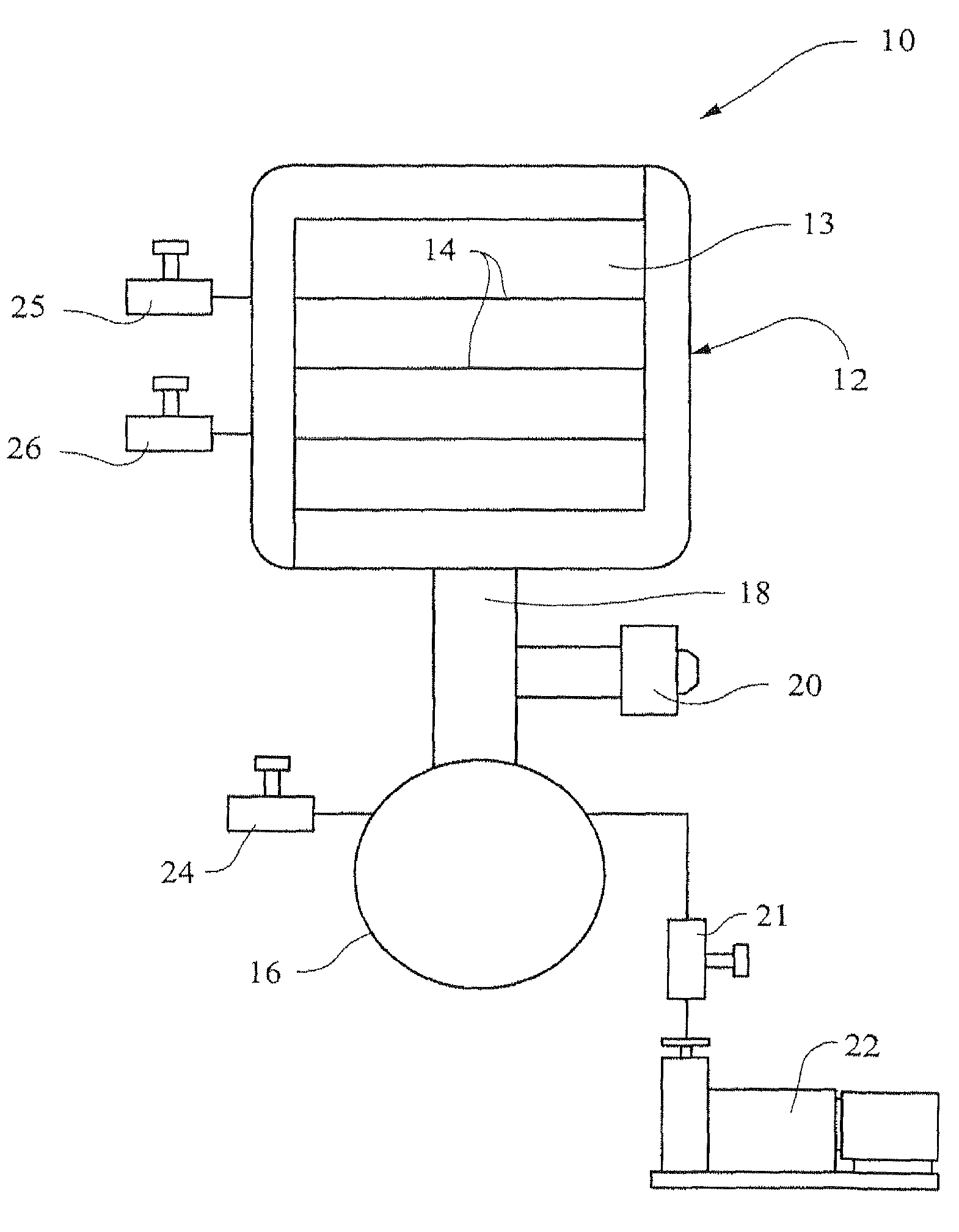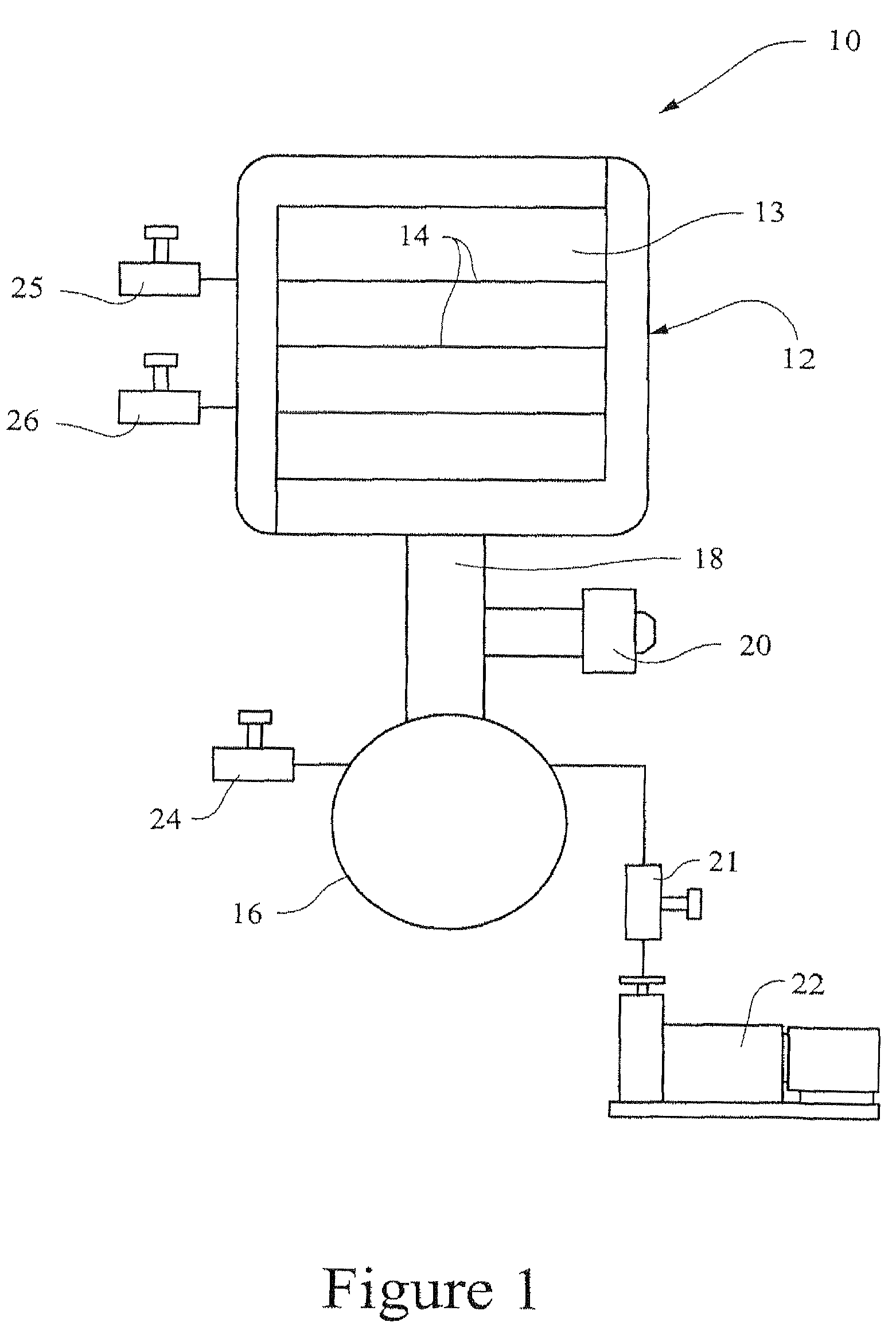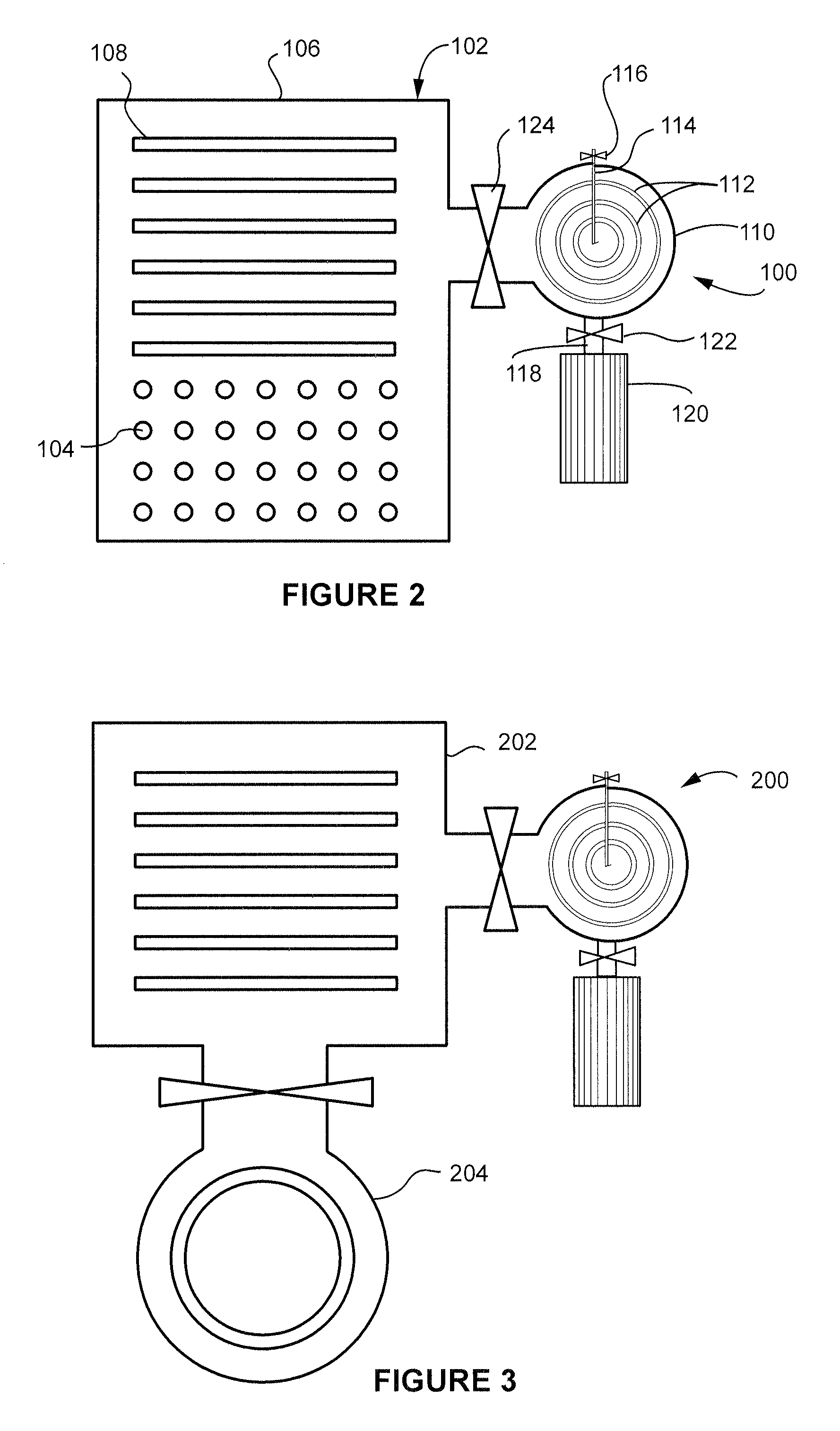Controlled nucleation during freezing step of freeze drying cycle using pressure differential ice crystals distribution from condensed frost
a technology of condensed frost and controlled nucleation, which is applied in the direction of drying, drying solid materials without heat, lighting and heating apparatus, etc., can solve the problems of increased nucleation time, increased cost and complexity, and reduced uniformity of products, so as to improve control nucleation performance and reduce the size of the condensing chamber , the effect of improving the nucleation process
- Summary
- Abstract
- Description
- Claims
- Application Information
AI Technical Summary
Benefits of technology
Problems solved by technology
Method used
Image
Examples
Embodiment Construction
[0018]As shown in FIG. 1, an apparatus 10 for performing the method of the present invention comprises a freeze dryer 12 having one or more shelves 14 for supporting vials of product to be freeze dried. A condenser chamber 16 is connected to the freeze dryer 12 by a vapor port 18 having an isolation valve 20 of any suitable construction between the condenser chamber 16 and the freeze dryer 12. Preferably, the isolation valve 20 is constructed to seal vacuum both ways.
[0019]A vacuum pump 22 is connected to the condenser chamber 16 with a valve 21 therebetween of any suitable construction. The condenser chamber 16 has a release valve 24 of any suitable construction and the freeze dryer 12 has a control valve 25 and release valve 26 of any suitable construction. As an illustrative example, the operation of the apparatus 10 in accordance with the method of the present invention is as follows:[0020]1. Cool down the shelf or shelves 14 to a pre-selected temperature (for example −5° C.) fo...
PUM
 Login to View More
Login to View More Abstract
Description
Claims
Application Information
 Login to View More
Login to View More - R&D
- Intellectual Property
- Life Sciences
- Materials
- Tech Scout
- Unparalleled Data Quality
- Higher Quality Content
- 60% Fewer Hallucinations
Browse by: Latest US Patents, China's latest patents, Technical Efficacy Thesaurus, Application Domain, Technology Topic, Popular Technical Reports.
© 2025 PatSnap. All rights reserved.Legal|Privacy policy|Modern Slavery Act Transparency Statement|Sitemap|About US| Contact US: help@patsnap.com



